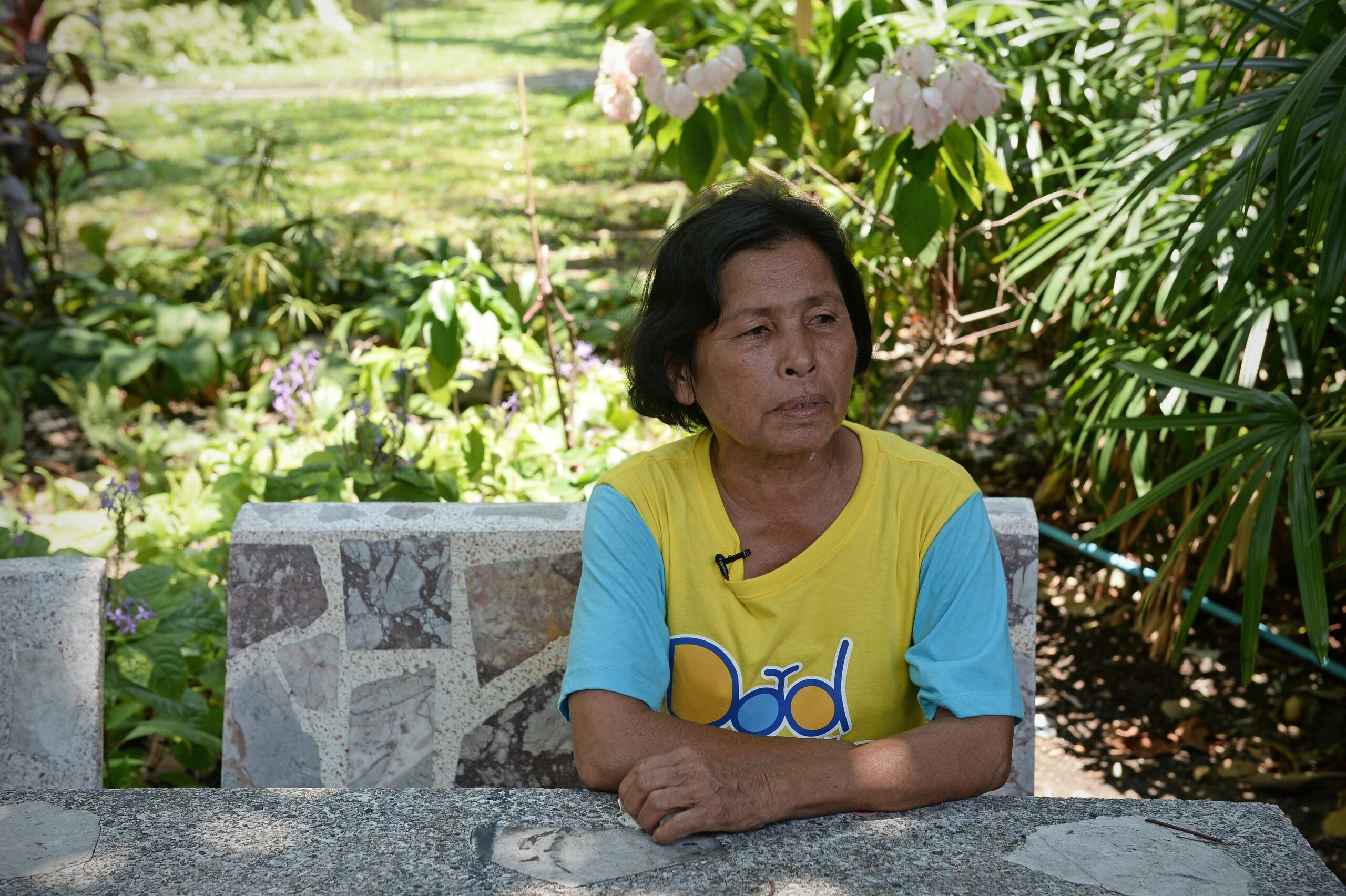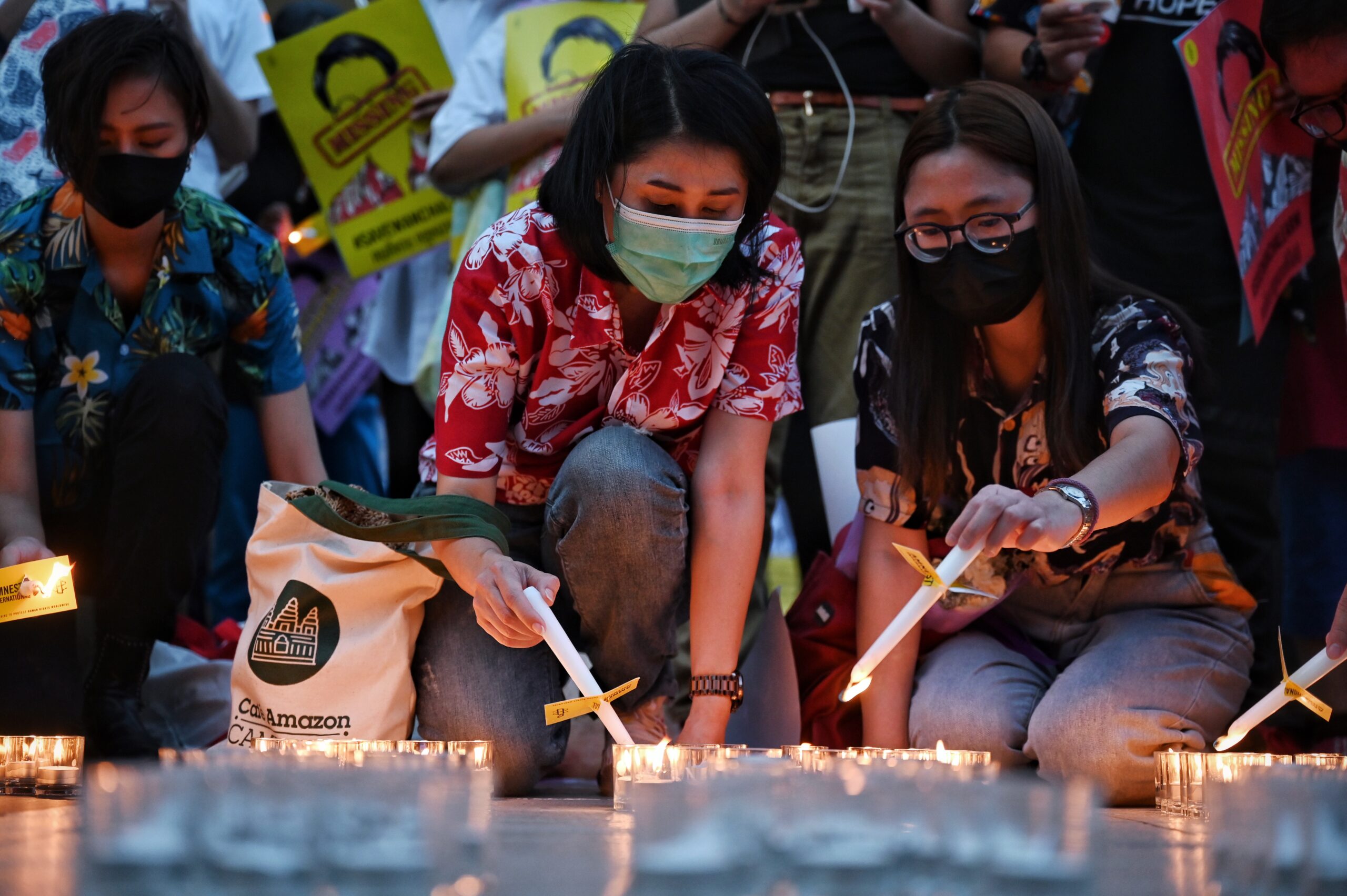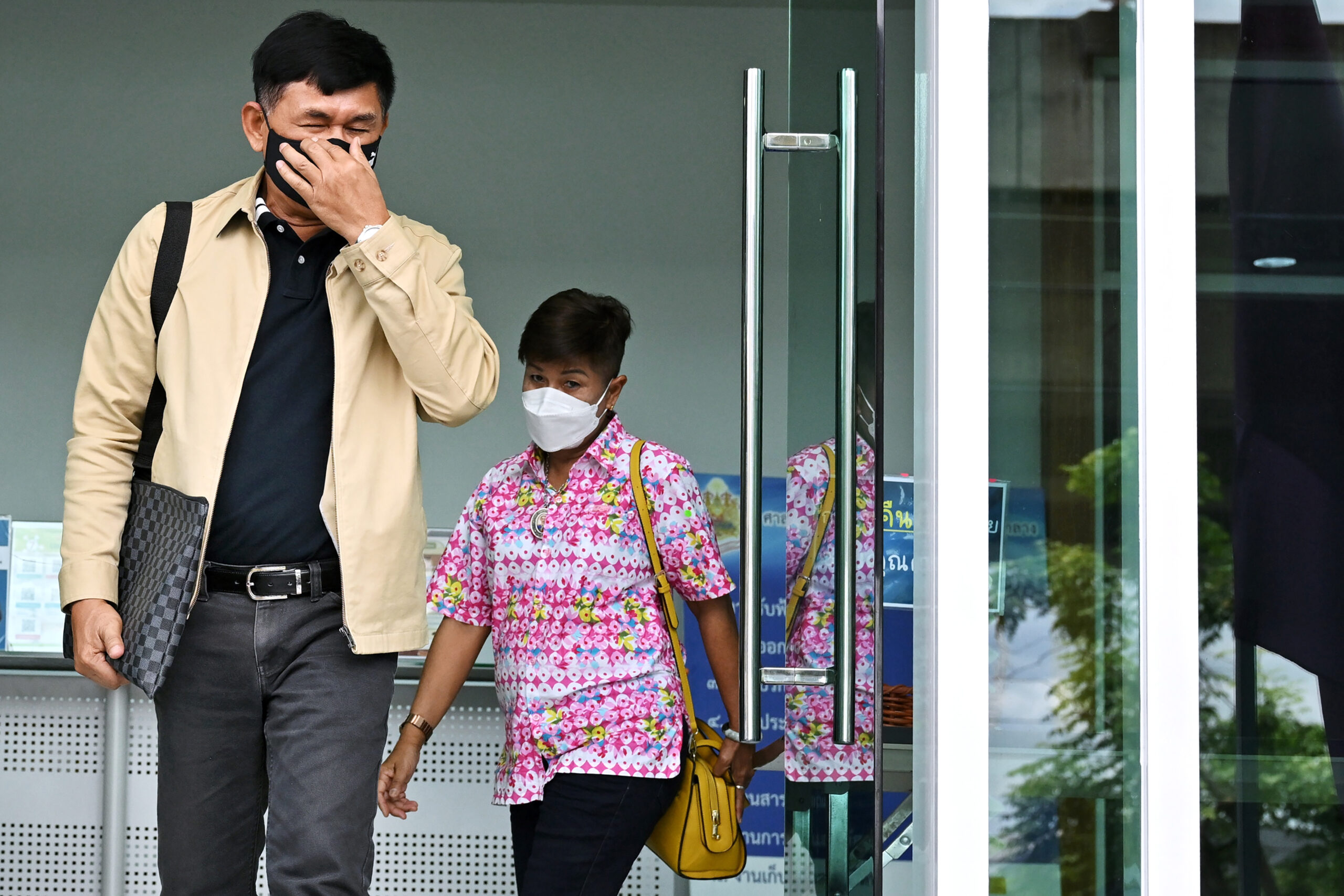It’s been more than seven years since Porlajee “Billy” Rakchongcharoen, a Karen local politician and a father of five children, vanished from his community in Kaeng Krachan National Park in Thailand’s Petchaburi province.
Billy had been fighting, mostly on his own, to defend the community’s rights to ancestral land within the park. He was up against Chaiwat Limlikidacsorn, 58, the head official of the park at that time, who was determined to evict the Karen in a bid to win UNESCO recognition for Kaeng Krachan.
Before park officials arrested Billy on April 17, 2014, he’d told his wife, Pinnapa Prueksapan, that powerful people had threatened to kill him. Park officials were the last to see Billy alive, but they claimed to have released him.
Though Pinnapa suspected the worst after he vanished, she kept pushing for the return of her husband.
In 2019, she finally learned his fate. Officers from the Department of Special Investigation had found charred bone fragments inside an oil drum sunken to the bottom of a reservoir in the park. DNA testing revealed the shards were from Billy.
That horrific discovery didn’t end Pinnapa’s fight for justice, even when it seemed the system could promise impunity for her husband’s killers. On 15 August, the attorney general’s office formally declared its decision to indict Chaiwat and three of his subordinate officers for Billy’s murder.
Billy’s apparent killing is one of Thailand’s many enforced disappearances, an act defined as a state-sanctioned abduction and often murder.
Few victims of these severe human rights violations are ever found – either dead or alive. Now, a coalition of human rights and legal campaigners are pressing the government to finally pass the Prevention and Suppression of Torture and Enforced Disappearance Act, which advocates say could help put an end to some of the most violent tendencies in Thai politics.

On August 24, the act passed the legislative review of both the Senate and the lower house with enormous support. However, its journey from bill into finalised law is not over yet.
To pass into law, the bill still needs a proclamation by the royal gazette, which means approval from the king. If he chooses not to sign off on the legislation, the bill would go back to the Parliament for another round of approvals. Lawmakers would need at least 500 of 750 total votes to approve the bill, at which point it would return to the king’s desk.
The King would then have 30 days to sign off – if he didn’t, the prime minister could then proclaim the act himself, though that would be an unprecedented turn of events.
It remains to be seen whether the king will sign the bill into law, but the need for this legislation to stem political violence is clear.
Other high-profile enforced disappearances since 2004 include the vanished Thai Muslim lawyer Somchai Neelaphaijit and 30 Muslim-Malayu individuals who vanished in the counter-insurgency in Thailand’s Deep South. Nine political refugees since 2016 have also disappeared, with two later reported dead, their bodies found dismembered on the banks of the Mekong River. The seven others are still missing with no trace.

The latest is Wanchalearm Saksaksit who went missing in Cambodia – where he’d been living, exiled in Phnom Penh – in a brazen, daylight abduction on June 4, 2020. Some of the abduction, in which witnesses say men bundled Wanchalearm into a waiting SUV before speeding off, was captured on CCTV.
Despite the continued advocacy of his family and of groups including the Cross Cultural Foundation, investigators in both Cambodia and Thailand have largely given up on finding the truth behind Wanchalearm’s disappearance.
Civil society organisations, families and members of Parliament remain united in the campaign to criminalise torture and enforced disappearances in Thailand. But the issue of officially sanctioned violence is wider still – a key example from recent history is the unforgettable Joe Ferrari case, where police used a black plastic bag to suffocate a drug suspect to death. The killing was captured in a video released to the public in August 2021.

Such images of the often-brutal reality of law enforcement have amplified calls for reform.
Now, as the enforced disappearance bill makes its way into law, justice must be served. Effective investigation, adequate remedies and prevention measures are the future.
Billy’s case is an example of this. Though it took more than eight years for the attorney general to move forward with murder charges for the accused, in August the office took that first big step to officially find the truth.
Chaiwat has made frequent media appearances to say that he is innocent, while claiming he has been bullied by civil society. Before his indictment for murder, he had filed his own lawsuits against a journalist, a lawyer and other human rights defenders alleging defamation and false accusations.
But even before the disappearance of Billy, Chaiwat had overseen clashes with the local Karen in the park. In 2011, his officers evacuated and burnt Billy’s community in Jae Paen Din, forcibly evicting hundreds of Karen without any compensation.
In 2018, the supreme administrative court found Chaiwat and his park office to have mishandled the eviction of Karen families at Jae Paen Din. The court ordered his office to compensate affected families – including that of Ko-ee Mimee, Billy’s grandfather and a respected Karen spiritual leader. He passed away soon after the verdict.
In 2021, UNESCO listed the Kaeng Krachan Forest Complex – a section within the park – as a Natural World Heritage Site during its meeting in China. The move was controversial, with UN human rights experts urging the committee to defer its decision due to the unresolved conflict with indigenous Karen in the park.
We cannot close our eyes on the ongoing case to bring Billy’s killers to justice.
No matter if the Thai judicial system alone can restore trust and confidence in equal justice – for all, including ethnic minorities living their traditional customs – Thailand shall no longer stand with the perpetrators under uniforms and influential power any longer.
The trial could last more than 10 years, but it is the beginning of the end of impunity.
Pornpen Kongkachankiet is the director of the Cross Cultural Foundation – an organisation that monitors and documents cases of torture and ill-treatment in Thailand


